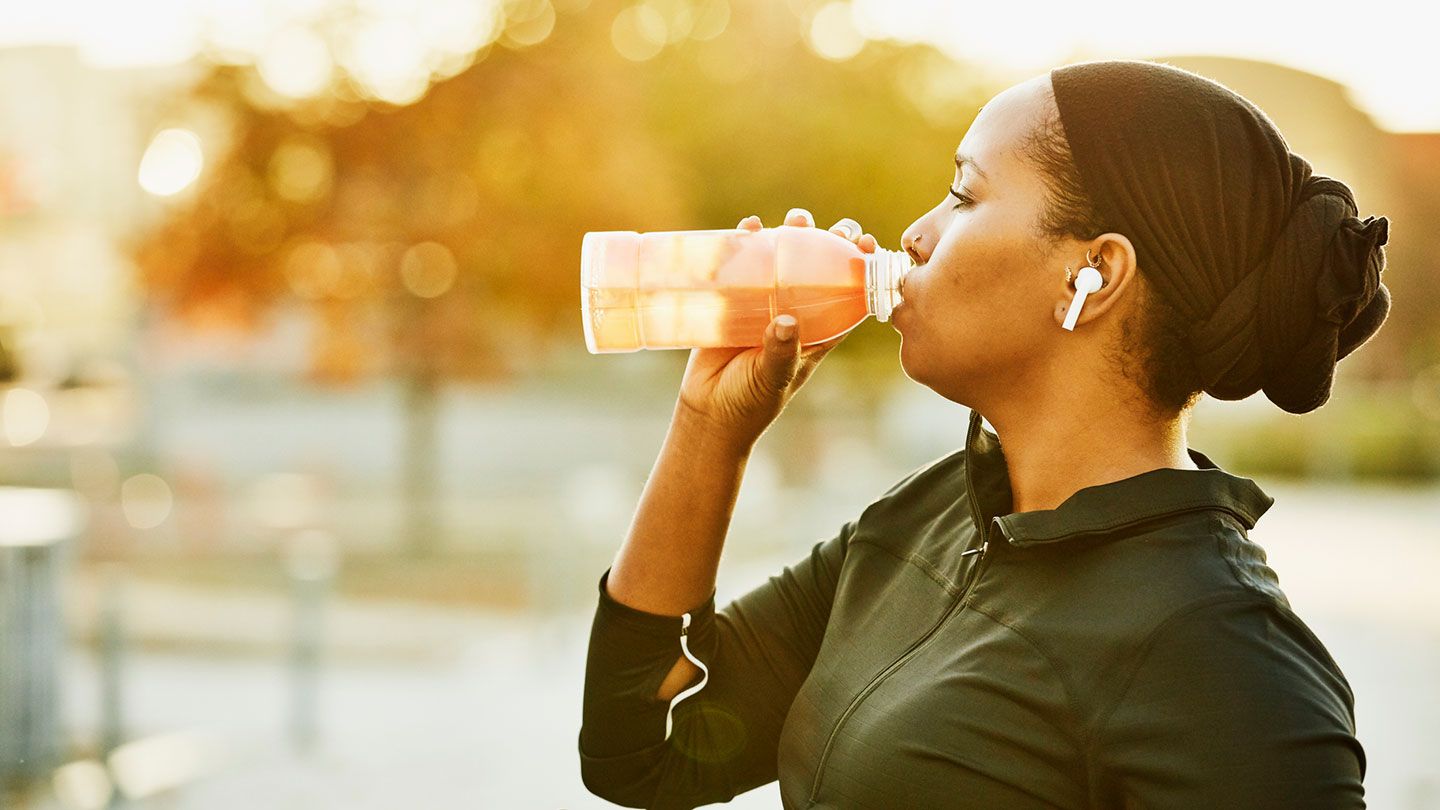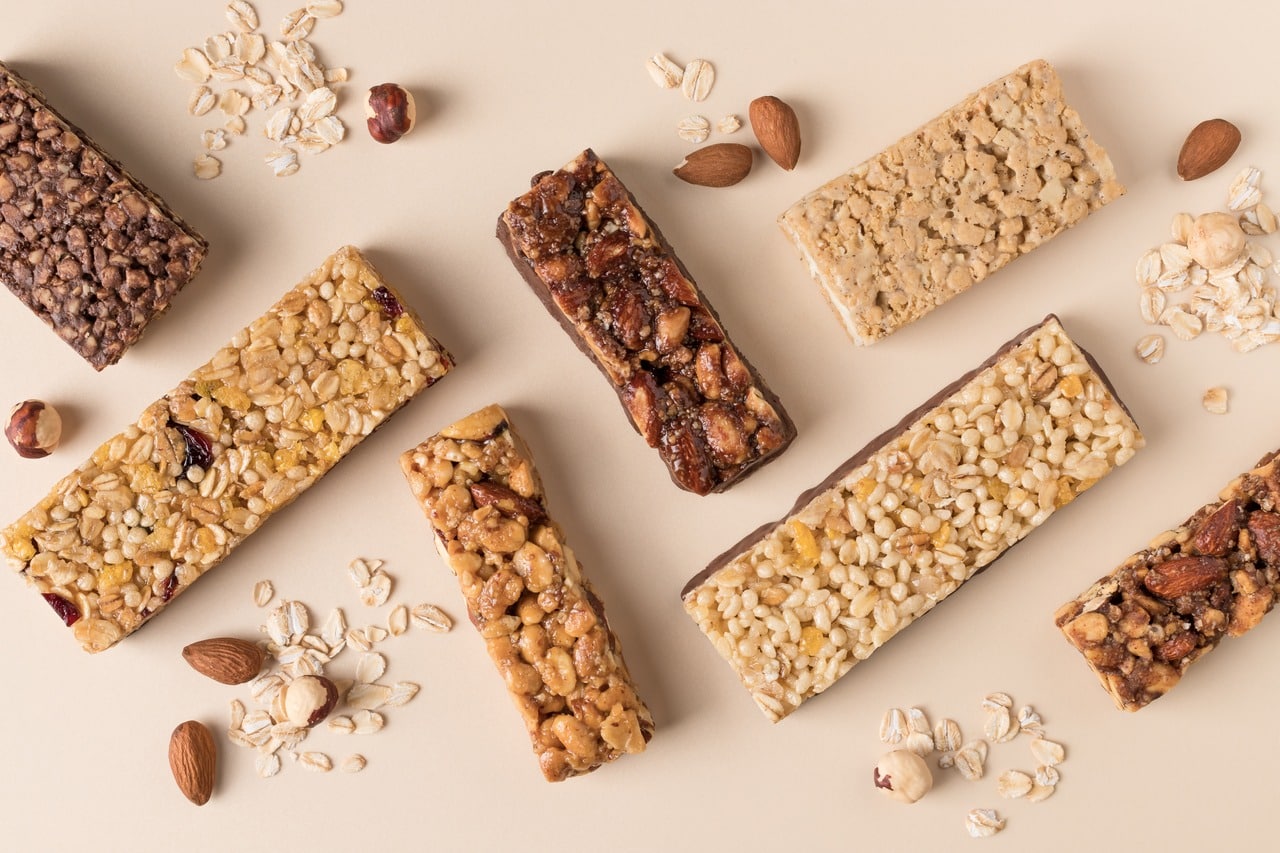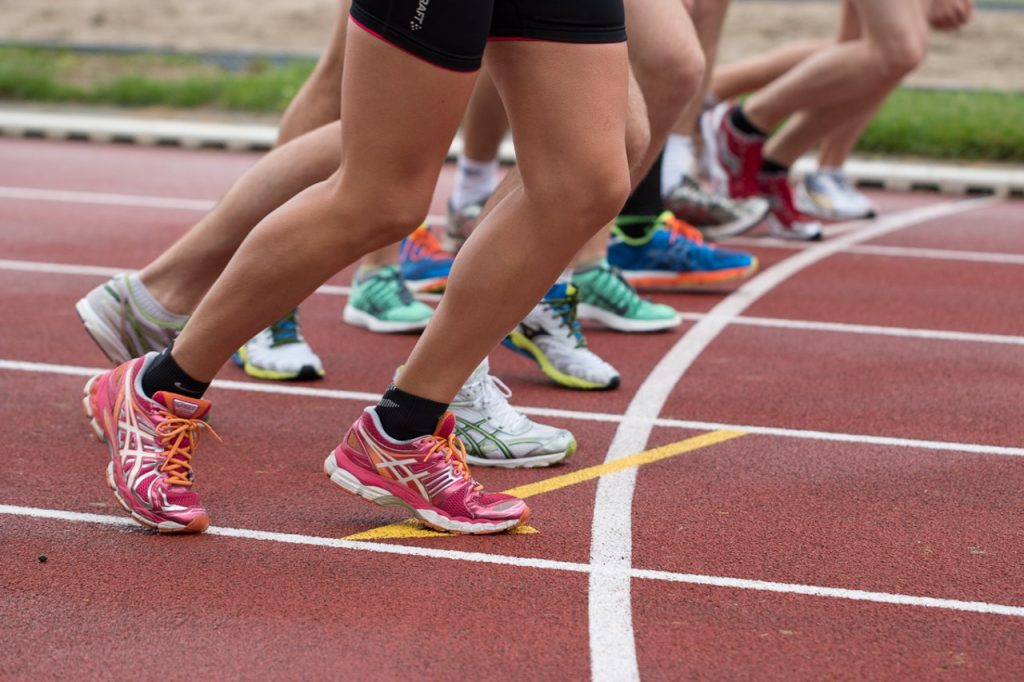Essential Nutrition Tips For Athletes To Fuel Your Perfomance
Discover essential nutrition tips for athletes to enhance performance, support recovery, and optimize overall well-being. From macronutrient balance to strategic meal timing, unlock the key insights for sustained energy and peak athletic achievement.
Author:Katharine TateReviewer:Karan EmeryFeb 15, 202412.5K Shares169.3K Views

The nutrients one consumes have a direct influence on athletic performance. By adhering to these nutrition tips for athletes, one can optimize their recovery and exercise experiences. Whether your objective is to achieve a personal record in a lift, efficiently complete a work-out, recover quickly from a long run, or experience the thrill of having a second (or even a third!) gear in a workout, your diet can either help you reach that goal or hinder you from reaching it.
While it is advisable to tailor your approach in collaboration with a seasoned coach, certain overarching principles can help you achieve immediate results. When and what foods should you consume to maximize your performance? What else should you bear in mind? The following are some immediate methods and strategies that can be implemented promptly.
Mind Your Greens
Athletes typically prioritize carbohydrates and protein in their diets, with the former serving as fuel and the latter offering the necessary recovery power for muscle healing and sustained high-level training. Even the most finely tuned athletes, however, may inadvertently overlook the importance of incorporating vegetables into their nutrition.
Cameron Noerr, a sports nutritionist and supplement formulator for AthletEssence, highlights the critical role of micronutrients (such as vitamins and minerals) found in vegetables. These micronutrients are essential as they enable the proper utilization of protein and carbohydrates, facilitating their delivery and aiding in the processing.
While protein and carbs hold significance, the inclusion of minerals and vitamins is equally vital. To address this, it is recommended to integrate vegetables into every major meal, adopting a strategy of layering by incorporating two or three different types of veggies simultaneously. This approach ensures a well-rounded nutritional intake that supports overall athletic performance.
Meal And Nutrient Timing Considerations
Aligning your meals with your training or competition schedule can potentially yield significant benefits, including enhanced recovery, accelerated tissue repair, improved muscle building, and a positive impact on post-high-intensity exercise mood.
To optimize muscle protein synthesis, the International Society of Sports Nutrition (ISSN) recommends a strategic approach of consuming meals containing 20-40 g of protein every 3-4 hours throughout the day. Notably, immediate protein intake within 2 hours post-intensive training is emphasized, as this period sees an elevated protein synthesis rate.
In addition to protein, the replenishment of carbohydrates is paramount after intense exercise. It is advised to consume 30-60 g of a simple carbohydrate source within the first 30 minutes post-exercise to effectively replenish glycogen stores.
Endurance athletes engaging in training sessions or competitions lasting more than 60 minutes are encouraged by the ISSN to ingest 30-60 g of carbohydrates per hour during the exercise session to maximize sustained energy levels. Conversely, for those involved in intense training sessions lasting less than an hour, replenishing carbohydrates immediately post-session may not be as time-sensitive.
Hydration Needs
During physical exertion, the body expels fluids and electrolytes through sweat, its natural mechanism for temperature regulation. Sustained high-intensity exercise necessitates the replenishment of fluids and electrolytes to prevent potential dehydration, ranging from mild to severe.
Athletes participating in training or competitions under hot conditions must be particularly vigilant about their hydration status, as elevated temperatures can expedite the depletion of fluids and electrolytes.
To preempt dehydration, it is advisable to proactively consume a minimum of 16 ounces (0.5 liters) of fluid within the two hours preceding an intense training session or competition.
Maintaining a balanced fluid level during an intense training session involves regularly ingesting 6-8 ounces of fluid every 15 minutes. Monitoring post-exercise weight loss by weighing oneself before and after training is a common method to gauge fluid loss, with each pound (0.45 kg) lost indicating a 16-ounce (0.5-liter) fluid deficit.
Rehydration should be a priority, equivalent to the amount of fluid lost, before embarking on the next training session. Additionally, replenishing electrolytes during and after extended intense exercise is crucial in avoiding dehydration.
Electrolyte restoration can be achieved through the consumption of sports drinks or by incorporating foods rich in sodium and potassium into the post-exercise regimen. Recognizing the potential inadequacy of some commercial sports drinks in electrolyte content, individuals may opt to prepare their solutions.
Alternatively, electrolyte tablets offered by various companies present a convenient option for supplementing water with the necessary electrolytes to sustain proper hydration levels.
Take Advantage Of Sleep To Increase Recovery
Recognizing the profound impact of sleep as a formidable asset in your training regimen, it goes beyond merely facilitating a faster recovery for subsequent workouts - it also plays a crucial role in maintaining a positive disposition.
A significant yet often overlooked anabolic opportunity arises during sleep, presenting athletes with an optimal period for promoting recovery and facilitating growth. Rather than viewing sleep solely as an opportunity to catch up on much-needed rest, strategically incorporating pre-bed, slow-digesting protein sources can transform the typical eight hours of potential catabolism into a productive phase dedicated to recovery, repair, and muscle growth.
Unlocking the full potential of sleep-induced recovery involves thoughtful consideration, and for those seeking to elevate their approach, planning a strategically timed nocturnal meal can further enhance the overall effectiveness of this crucial aspect of the training process.
Optimize Your Blood Sugar Levels For Better Performance
Elevate your nutritional strategy to a higher echelon by paying meticulous attention to the synergy of your meals, a practice that can significantly enhance both your performance and sleep quality.
Consider this: certain food combinations possess the unique ability to optimize blood sugar levels, thereby enhancing various markers of athletic performance. The key lies in strategically incorporating sources of protein, fat, and fiber in almost every meal. This synergistic approach not only optimizes blood sugar but also facilitates the utilization of fat as an energy source, preserving valuable carbohydrate stores for sustained physical exertion.
The benefits extend beyond immediate performance improvements. By fine-tuning your blood sugar levels, you pave the way for enhanced sleep quality, fostering a crucial component of recovery during intense training and competitions. This holistic approach underscores the interconnectedness of nutrition, performance, and recovery.
In practice, aim for a harmonious blend of protein from sources such as eggs, beef, or chicken, complemented by healthy fats found in protein-rich foods and augmented by additions like avocados, olives, and oils such as coconut and olive oil. Complete the nutritional trifecta with fiber, sourced from vegetables, fruits, or whole grains.
What To Know About Snacks
Navigating the array of snack choices is essential for efficiently replenishing energy stores without inducing a sense of overwhelming fullness. The optimal snack is not only well-balanced in terms of macronutrients but also convenient in its preparation.
Consider various pre and post-training snack options, each curated to provide a harmonious blend of nutrients:
- A whole-grain sandwich (turkey, egg salad, tuna, peanut butter and jelly, or low-fat grilled cheese)
- Apple slices paired with nut butter
- Hard-boiled eggs on toast
- Pita chips and bell peppers dipped in hummus
- Greek yogurt with granola
- Trail mix
- A protein bar
- Chia pudding
- Low-sugar cereal combined with milk and protein powder
- A salad featuring protein, such as chicken
- A protein smoothie
- A piece of fruit accompanied by a low-fat cheese stick
When snacking before a workout, prioritize options with lower fat content, as they facilitate quicker digestion and are less likely to induce a sensation of fullness.
Post-exercise, focus on snacks that deliver a substantial combination of protein and carbohydrates. This approach is crucial for replenishing glycogen stores and supporting muscle protein synthesis, enhancing recovery after physical exertion. Selecting snacks mindfully based on these principles ensures that your nutritional choices align with the specific demands of both pre and post-training scenarios.
Prep Your Meals
Elite athletes recognize the paramount importance of periodization and meticulous preparation in their training routines. This same level of planning and scrutiny should seamlessly extend to the critical aspect of fueling one's body.
The key lies in proactively preparing meals ahead of time, ensuring they are ready to go when you return home fatigued after a grueling day of workouts. Loading up your meal prep containers in advance serves as a strategic approach, guaranteeing that your food choices align with your nutritional goals.
Having personally experienced the challenge of facing meal preparation after an exhaustive six-hour training session in the pool and gym, the last thing I desired was the additional task of cooking a meal. In such situations, the convenience of less healthy options often prevailed.
Recognize the synergy between hunger and fatigue - as Snickers aptly puts it, you're not yourself when you're hungry. Merge these factors, and your decision-making in front of the fridge becomes less reliable.
Exercise humility and self-awareness, acknowledging that hunger and fatigue can compromise your ability to make optimal nutritional choices. By planning and prepping your dinners in advance, you transform the convenient option into a healthy one.
Balance Macronutrients
The term "macronutrients" encompasses the three primary components of food: fat, carbohydrates, and protein. Individuals should limit their fat intake, favoring unsaturated fats over saturated ones. Choosing foods like nuts, unrefined oils, seeds, and lean meats such as chicken or fish supports a balanced macronutrient profile.
Carbohydrates serve as the primary source of energy, while protein plays a crucial role in muscle repair and growth. Contrary to the misconception that all athletes should adhere to a high-protein, low-carbohydrate diet, it's essential to acknowledge that muscles require stored glucose provided by carbohydrates to sustain energy levels and athletic performance.
The specific ratios of carbohydrates and protein needed vary based on the nature of the sport. Endurance athletes, for instance, require more carbohydrates for sustained energy and a moderate level of protein. On the other hand, athletes engaged in power sports may benefit from a higher protein intake with a moderate amount of carbohydrates.
While protein is a prominent nutrient in sports nutrition, excessive reliance on protein shakes is unwarranted. Nutrition experts, as cited by the Academy of Nutrition and Dietetics, recommend athletes consume 1.2 to 2 grams of protein per kilogram of body weight daily.
It's crucial to distribute protein intake throughout the day, incorporating both plant and animal sources. For optimal results and muscle repair, the International Olympic Committee suggests athletes consume 15 to 25 grams of protein within two hours after a training session.
For balanced nutrition, consume a well-rounded meal three to four hours before training or a match. Opt for whole grains combined with protein and moderate fat. Fueling options like sweet potatoes provide effective energy for workouts, while a grilled chicken salad with fruit and dark leafy greens serves as a nutritious recovery option.
Stay Consistent On Game Day
Game day is not the occasion to experiment with your nutrition, especially on the morning of the event. The last thing you want is to step onto the court, field, or blocks and experience stomach discomfort.
While there may be instances where games or competitions take you away from the familiarity of your home refrigerator, a bit of straightforward planning can prevent such scenarios and ensure that both you and your stomach are prepared and ready for peak performance.
Track And Monitor Your Nutrition
While the idea of keeping a record may initially seem laborious or akin to additional tasks on your to-do list, it serves as a valuable tool in providing a precise overview of your dietary habits. More importantly, it aids in establishing connections between your eating patterns and specific phases in your training where you may experience fatigue or weakness.
A comprehensive meta-analysis of weight loss studies revealed that self-monitoring and regular evaluation significantly contributed to the success of individuals in achieving their weight loss goals and maintaining consistency in their fitness routines.
Although athletes may not be primarily focused on weight loss, their priority lies in ensuring they meet daily targets for essential macronutrients, supplements, and overall nutritional requirements. Keeping a detailed record emerges as the simplest and most reliable means to track and fulfill these goals consistently.
People Also Ask
What Is The Best Pre-workout Meal For Athletes?
The ideal pre-workout meal for athletes includes a combination of carbohydrates and protein, such as a banana with peanut butter or Greek yogurt with fruit.
How Much Protein Do Athletes Need Daily?
Athletes should aim for 1.2 to 2 grams of protein per kilogram of body weight daily, distributed throughout meals, to support muscle repair and growth.
Are Supplements Necessary For Athletes?
While a well-balanced diet should be the primary source of nutrients, certain supplements can be beneficial for athletes, such as protein powder, omega-3 fatty acids, and vitamin D.
What Are The Best Post-workout Foods For Recovery?
Optimal post-workout foods include a combination of protein and carbohydrates, like a chicken and quinoa bowl or a protein smoothie with fruits.
Final Words
Prioritizing tailored nutritional strategies is pivotal for athletes aiming at peak performance and sustained success. Balancing macronutrients, strategic meal timing, and consistent hydration not only enhances physical capabilities but also fosters efficient recovery.
Recognizing individualized needs based on sport, intensity, and personal goals is crucial. Consistent adherence to these nutrition tips establishes a robust foundation for sustained energy, optimal muscle function, and effective recovery. By integrating nutrition seamlessly into training, athletes can unlock their full potential, ensuring they are well-fueled and ready for the rigors of their sports with resilience.
Jump to
Mind Your Greens
Meal And Nutrient Timing Considerations
Hydration Needs
Take Advantage Of Sleep To Increase Recovery
Optimize Your Blood Sugar Levels For Better Performance
What To Know About Snacks
Prep Your Meals
Balance Macronutrients
Stay Consistent On Game Day
Track And Monitor Your Nutrition
People Also Ask
Final Words

Katharine Tate
Author

Karan Emery
Reviewer
Latest Articles
Popular Articles



